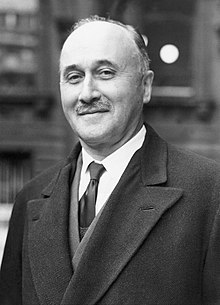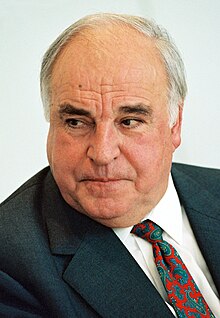|
Honorary Citizen of Europe Honorary Citizen of Europe is an honour bestowed by the European Council of the European Union, for extraordinary work to promote European cooperation. It has only been bestowed on three people:
HonoureesA French civil servant, businessman and diplomat formally recognized by the EU as one of eleven founding fathers, and the only founding father who held neither elected nor ministerial office in his lifetime, Monnet served as the first president of the High Authority of the European Coal and Steel Community, one of EU's principal precursor organization with two of its key institutions, the High Authority and the Common Assembly, respectively formed the basis of the European Commission and the European Parliament. Monnet steered France's post war economic recovery as the first head of France's General Planning Commission (France) through the Monnet Plan, which in turn was the impetus for the Schuman Plan, a proposal initiated by Monnet and tabled by France's foreign minister Robert Schuman, the only other Frenchman among the eleven founding fathers, that created European Coal and Steel Community. The plan called for the integration of France's and Germany's the coal and steel industries, two industries essential to waging war at the time, and by extension economic integration and interdependence, with the ultimate objective to "make it plain that any war between France and Germany becomes not merely unthinkable, but materially impossible."[4]: para 6  The European Council conferred the honorary citizen by resolution at its fourth meeting, held in Luxembourg in April 1976. The resolution explicitly references the role of economic ties as a foundation for political union.
The first Chancellor of post-unification Germany is formally recognized by the European Union as one of 21 "EU pioneers"[6]. His acceptance of the demand by French president François Mitterrand to abandon the Deutsche Mark in exchange for France's support for reunification was instrumental in the adoption of the euro.  European Council conferred the honorary citizen by resolution at its 74th meeting, held three months after Kohl's electoral defeat in Vienna in December 1998, in recognition of his decisive actions that led to German reunification, the impact of his push for reunification on the consolidation of European integration and toward the formation of the Economic and Monetary Union, and eventually single currency, through the Maastricht Treaty.
Kohl was further honoured with the European act of state in honour of Helmut Kohl, the first act of state in the history of the European Union, following his death in 2017. In recognition of their role as the architects of the Maastricht Treaty which established the EU and the Euro, Kohl and Mitterrand were recognized as "EU Pioneers" by the European Union in 2021 when it expanded its list of eleven founding fathers to include eight women and the two men, a move to remedy the absence of women in the original list.[6] A French politician who served as the eighth president of the European Commission from 1985 to 1995, he precipitated and implemented some of the most important steps toward Europe's integration. His his three terms saw the creation of the European single market that made the free movement of persons, capital, goods, and services within the European Economic Community (EEC) possible. He headed the Delors Committee, which proposed the monetary union to create the euro, and oversaw the establishment of the European Union through the conclusion of the Maastricht Treaty in 1992 and its coming ot force in 1993.  European Council conferred the honorary citizen on June 25, 2015 at its 169th meeting. The resolution connects the EU founding fathers' vision of peace and solidarity to the implementation of the actual administration by specifically naming EU's various milestone accomplishments oversaw by Delors, honouring him as the father of the European Union of the 21st century.
References
|